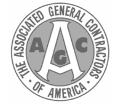Fire Protection & Safety for the Education Industry
Fire protection in educational buildings is crucial not only to save lives, but to prevent major destruction of property and delays in the course curriculum. If you are the manager of an educational institute or facility, you should know the facts, hazards, and prevention measures when it comes to protecting your property from a fire emergency.
Kauffman Co. has been providing fire protection services—installation, inspection, repair, and replacement—throughout the Houston, Texas area for many years. To get an on-site estimate, contact us today.
Facts about School & Campus Fires
From 2007 to 2011, U.S. fire departments responded to an average of 5,690 fires in educational properties each year. These properties included day care centers, schools, campuses, academic buildings, and learning centers.
The National Fire Protection Association (NFPA) broke down the annual average number of fires, civilian injuries, and property damage by type of facility:
| Day Care Centers | Preschools through Grades 12 | College Classroom Buildings and Adult Education Centers | Total | |
| Structure Fires |
580 |
4,060 |
700 |
5,690 |
| Civilian Injuries |
8 |
70 |
4 |
85 |
| Direct Property Damage |
$6 million |
$70 million |
$7 million |
$92 million |
Fire Hazards in Educational Buildings
It’s almost important to understand the biggest fire hazards when it comes to educational buildings. While it might not be the first place you think of, most schools still have kitchens or commercial cooking areas. Like restaurants and other larger facilities, kitchens are one of the leading areas where fire start.
In the following summary from the NFPA, you can see the leading causes of fires, where fires started, and what was first ignited by structural fires in educational buildings from 2007 – 2011 broken down by age group:
| Leading Causes of Fire | Start of Fire | Item First Ignited | |
| Day Care Centers | Cooking equipment | Kitchen area
Bathroom |
Cooking materials |
| Preschools through Grades 12 | Half were set intentionally
Cooking equipment |
Lavatory
Kitchen area |
Trash or rubbish
Cooking materials |
| College Classrooms Buildings and Adult Education Centers | Cooking equipment
Intentional |
Kitchen area
Lavatory or bathroom |
Cooking materials
Trash or rubbish |
Fire Protection Methods for Schools & Campuses
As a building manager of an educational building, you should ensure that the structure has properly installed, professionally maintained, and regularly inspected fire protection systems throughout the building. These can include:
Fire sprinkler systems – fire sprinklers are essential for protecting your classrooms around the clock, whether or not they are currently being used for teaching. Fire sprinklers can prevent a fire from spreading from one room to the next, minimizing downtime during the school days and reducing the number of displaced classrooms. The NFPA reports that direct damage from a fire is 63 percent lower when sprinkler systems were present and used compared to school fires without automatic sprinkler systems.
Fire evacuation routes – you should have fire evacuation routes posted in each room with more than one escape route listed. Depending on the school’s blue prints, there may be more than one safety zone that teachers can safely lead students too. Most schools practice fire drills monthly, which is a great way to ensure that students will know the best and safest evacuation route regardless of what classroom they are currently in. Students should also be reminded not to take any belongings or stop by lockers on their way out in the event of a fire emergency.
Fire alarms – having a working, well-maintained fire alarm system is crucial for keeping your educational building up to code and safe for your students and staff. To ensure that it is in working order—and ready to alert guests of a fire emergency at any time of day or night—you should have your system inspected regularly by a professional fire protection company. If the students within your school are younger, it is important to teach them not to view the fire alarm as a toy or prank—only to be used in serious situations.
Fire extinguishers – local standards will differ, but an ABC fire extinguisher is the most versatile and common type because it can put out fire caused by ordinary materials (paper, plastic, trash), flammable liquids (oil, grease, gasoline), and electrical equipment (appliances, computers, wiring). You can conduct fire extinguisher training for your teachers and staff so that they can control a smaller fire that might break out in a classroom. Fire extinguishers should also be clearly labeled in rooms throughout the schools.
Fire Safety Tips for Schools
When protecting the lives of students and educators, you can never be too safe. Here are some extra safety tips to prevent extensive loss or damage from a fire that starts within an educational property:
- Principals, staff, and teachers should inspect that all exit routes, doors, and stairways are clear and unblocked
- Each room within the school or campus should have a clearly labeled evacuation route map
- While speed is important for evacuating a building, order should also be a high priority to prevent further injury or chaos
- Use rosters to account for all students
- Teachers and staff should be familiar with the location and use of fire alarms, extinguishers, and sprinkler systems
Contact your local fire department or a fire protection company in the area for more tips and information on keeping your school safe from a fire.
Fire Protection in Houston, Texas
At Kauffman Co., we provide a wide range of services to protect all of your students, teachers, and staff from a fire emergency. We are proud to provide owners and managers of schools and campuses in the Houston, TX area with full service fire protection—everything from fire sprinkler installation and testing to maintenance, repair, and replacement of existing fire protection systems.
Contact us to see how Kauffman Co. can help you protect your Houston area educational institute against all fire hazards and emergencies!















